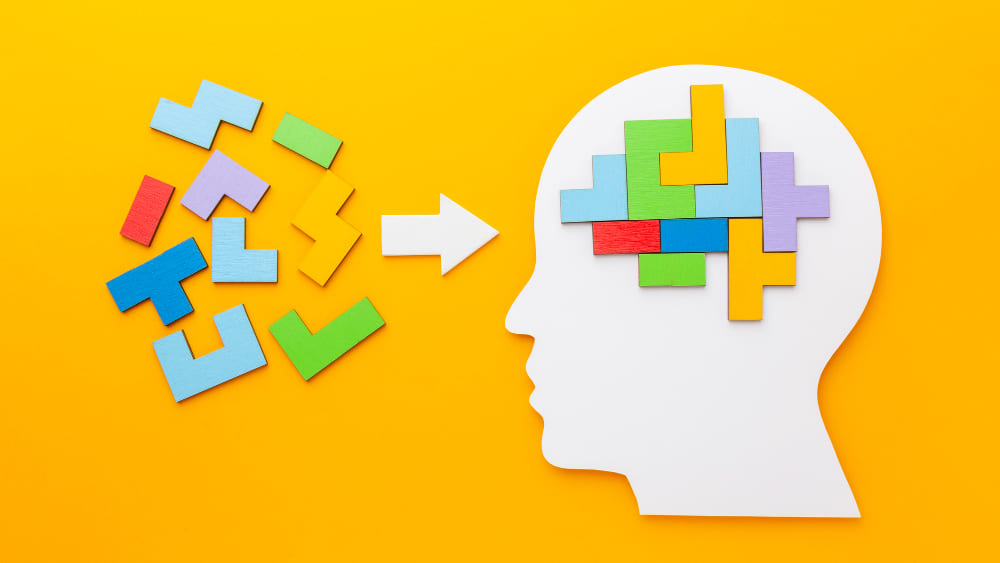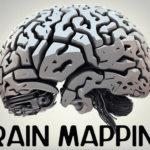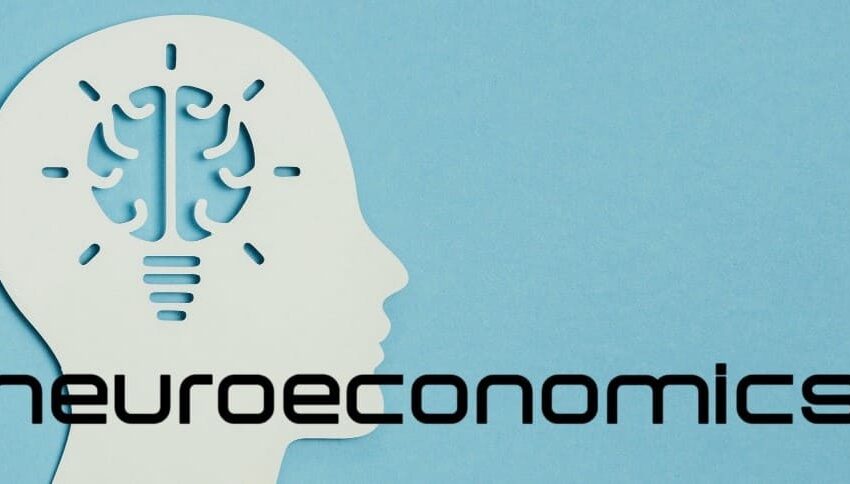
Overview:
Cognitive training represents a cutting-edge approach to enhancing mental acuity and cognitive function through structured exercises and activities. By focusing on specific cognitive skills such as memory, attention, problem-solving, and reasoning, these programs aim to optimize brain performance and resilience across various stages of life.
To understand what is cognitive training even better, we will have to leverage principles of neuroplasticity—the brain’s ability to reorganize and adapt—that facilitate improvements in cognitive abilities. Tailored to individual needs and capabilities, these programs offer a personalized approach to mental fitness, employing techniques like repetition, feedback mechanisms, and adaptive learning strategies to maximize effectiveness. As research continues to uncover new insights into brain function and as technology enables more sophisticated training methods, cognitive training holds promise not only for enhancing cognitive performance but also for supporting overall brain health and well-being.
Contents:
- What is Cognitive Training
- Understand Cognitive Training in a Layman’s way
- How Cognitive Training Works
- Key Technologies Enabling Cognitive Training
- Key Benefits of Cognitive Training
- Key Challenges with Cognitive Training
- The regulatory framework for Cognitive Training
- Summing Up
So, what is Cognitive Training:
Cognitive training refers to a variety of techniques and exercises designed to improve cognitive functions such as memory, attention, problem-solving, and reasoning. These programs often involve structured activities or games that challenge different cognitive abilities. The goal of cognitive training is to enhance mental processes and potentially mitigate cognitive decline associated with aging or neurological conditions. It can be tailored to specific cognitive goals and adapted for various populations, from healthy individuals looking to maintain sharpness to those recovering from brain injury or managing cognitive disorders.
Let’s understand Cognitive Training in a Layman’s way:
Imagine cognitive training like going to the gym, but for your brain instead of your muscles. Just like how lifting weights or doing cardio exercises improves your physical fitness, cognitive training involves doing mental exercises that challenge and strengthen your brain. These exercises can include things like puzzles, memory games, or problem-solving tasks. The goal is to keep your mind sharp, improve memory, attention, and thinking skills, and even potentially slow down age-related cognitive decline. It’s like giving your brain a workout to help it stay healthy and perform better in everyday tasks.
How Cognitive Training works:
1. Assessment:
Individuals undergo initial assessments to identify their cognitive strengths and areas needing improvement. This helps customize the training program.
2. Targeted Exercises:
Designed activities focus on specific cognitive skills like memory, attention, problem-solving, and reasoning. These exercises vary in complexity to challenge and stimulate the brain.
3. Repetition and Practice:
Consistent practice through repeated exercises strengthens neural pathways associated with targeted cognitive functions, enhancing performance over time.
4. Feedback and Adaptation:
Continuous feedback from performance assessments guides adjustments to the training regimen, ensuring tasks remain challenging yet achievable.
5. Transfer and Application:
The ultimate goal is to transfer gains made in training tasks to real-world scenarios, improving overall cognitive abilities and potentially delaying cognitive decline.
6. Maintenance:
Sustained engagement with cognitive exercises is encouraged to maintain and build upon improvements, promoting long-term cognitive health.
7. Support and Monitoring:
Some programs offer professional oversight or use technology like adaptive algorithms to tailor exercises to individual progress and needs.
Key Technologies enabling Cognitive Training:
1. Digital Platforms and Apps:
Interactive Software: Digital platforms and mobile apps provide a convenient and accessible way for users to engage in cognitive training exercises. These platforms often include games, puzzles, and tasks designed to improve various cognitive functions.
Adaptive Learning: Many digital platforms use adaptive algorithms to adjust the difficulty of tasks based on the user’s performance, ensuring personalized and effective training.
2. Neurofeedback and Biofeedback:
EEG (Electroencephalography): Neurofeedback systems use EEG to monitor brain activity in real-time. Users receive feedback about their brainwaves, which can help them learn to regulate and improve their cognitive functions.
Heart Rate Variability (HRV): Biofeedback systems can measure physiological signals such as heart rate variability, helping users manage stress and improve cognitive performance through relaxation and focus techniques.
3. Artificial Intelligence and Machine Learning:
Personalization: AI algorithms analyze user data to personalize cognitive training programs, tailoring exercises to individual strengths, weaknesses, and progress.
Performance Analysis: Machine learning models can track and analyze user performance over time, providing insights and recommendations for further improvement.
4. Virtual Reality (VR) and Augmented Reality (AR):
Immersive Environments: VR and AR technologies create immersive and engaging environments for cognitive training. These environments can simulate real-life scenarios, enhancing the transfer of cognitive skills to everyday activities.
Enhanced Interaction: Users can interact with virtual objects and scenarios in a way that traditional methods can’t offer, providing a more dynamic and engaging training experience.
5. Cognitive Assessment Tools:
Standardized Tests: Digital cognitive assessment tools provide a way to evaluate cognitive abilities before, during, and after training. These assessments help tailor the training program and track progress.
Real-Time Feedback: Tools that offer real-time feedback on performance can help users understand their progress and areas needing improvement.
6. Wearable Devices:
Activity and Sleep Trackers: Wearable devices that monitor physical activity and sleep patterns can provide valuable data for cognitive training. Good physical health and sleep are crucial for cognitive function.
Brain-Computer Interfaces (BCIs): Advanced wearable devices can directly interface with the brain to monitor and potentially enhance cognitive processes through direct neural stimulation.
7. Cloud Computing:
Data Storage and Processing: Cloud computing enables the storage and processing of large datasets collected from cognitive training activities. This allows for more sophisticated analysis and the development of more effective training programs.
Accessibility: Cloud-based platforms make cognitive training programs accessible from anywhere, allowing users to train on multiple devices and ensuring their progress is always synchronized.
Key Benefits of Cognitive Training:
1. Improved Memory:
Cognitive training can enhance both short-term and long-term memory, helping individuals remember information like names, dates, and daily tasks more effectively.
2. Enhanced Attention and Focus:
Regular cognitive exercises can improve your ability to concentrate on tasks and maintain focus, which is beneficial for both personal and professional activities.
3. Better Problem-Solving Skills:
Engaging in activities that challenge your reasoning and problem-solving abilities can make you more adept at handling complex situations and finding solutions.
4. Increased Processing Speed:
Cognitive training can help speed up your brain’s processing abilities, allowing you to think and react more quickly, which is useful in various everyday situations.
5. Reduced Risk of Cognitive Decline:
Some studies suggest that regular cognitive training can help delay the onset of age-related cognitive decline and potentially reduce the risk of conditions like dementia, helping maintain cognitive health as you age.
Key Challenges with Cognitive Training:
1. Individual Differences:
People have varying cognitive abilities and learning styles, making it difficult to design a one-size-fits-all training program. What works for one person might not be effective for another.
2. Sustained Motivation:
Keeping individuals motivated and engaged in cognitive training over the long term can be challenging. Consistent practice is essential for effectiveness, but some people may struggle to stay committed.
3. Transferability of Skills:
Improvements seen in cognitive training tasks do not always transfer to real-world skills and everyday cognitive functions. Ensuring that training benefits generalize to daily life is a significant challenge.
4. Scientific Validation:
Not all cognitive training programs have been rigorously tested and scientifically validated. This can lead to skepticism about their efficacy and potential benefits.
5. Resource Requirements:
High-quality cognitive training programs may require substantial time, effort, and sometimes financial investment. Access to necessary resources and technology can be a barrier for some individuals.
The regulatory framework for Cognitive Training:
1. Scientific Validation and Efficacy:
Clinical Trials and Research: Cognitive training programs should be validated through rigorous scientific research and clinical trials. Regulatory bodies may require evidence of effectiveness before approving programs for public use.
Standardization: Standards for the design, implementation, and evaluation of cognitive training programs help ensure consistent quality and effectiveness.
2. Consumer Protection:
Truth in Advertising: Regulatory agencies, such as the Federal Trade Commission (FTC) in the U.S., oversee advertising claims to ensure they are truthful and not misleading. Programs must not make unfounded claims about their benefits.
Data Privacy and Security: Regulations like the General Data Protection Regulation (GDPR) in Europe and the Health Insurance Portability and Accountability Act (HIPAA) in the U.S. ensure the protection of personal data collected by cognitive training programs.
3. Ethical Standards:
Informed Consent: Participants in cognitive training programs must be fully informed about the nature of the program, potential risks, and benefits. Informed consent is crucial, especially in clinical settings.
Non-discrimination: Programs must be accessible and designed to accommodate diverse populations, avoiding biases and ensuring inclusivity.
4. Healthcare Integration:
Medical Device Classification: In some cases, cognitive training programs may be classified as medical devices, requiring approval from regulatory bodies like the Food and Drug Administration (FDA) in the U.S. This includes demonstrating safety and efficacy.
Professional Oversight: Programs used in clinical settings may need to be administered or supervised by licensed healthcare professionals to ensure proper use and interpretation of results.
5. Regulatory Bodies and Guidelines:
National and International Agencies: Various agencies, such as the FDA in the U.S., the European Medicines Agency (EMA) in Europe, and other national health departments, provide guidelines and regulations for cognitive training programs.
Professional Organizations: Organizations like the American Psychological Association (APA) and the International Society for Neurofeedback and Research (ISNR) may offer guidelines and best practices for cognitive training.
Summing Up:
Cognitive training offers a structured approach to improving cognitive abilities through targeted exercises that challenge and stimulate the brain. By focusing on specific cognitive functions such as memory, attention, problem-solving, and reasoning, these programs aim to enhance neural plasticity and optimize cognitive performance. Individualized assessments guide the customization of training regimens, ensuring exercises are appropriately challenging and tailored to each person’s needs.
Through consistent practice, feedback loops, and adaptive learning techniques, cognitive training not only aims to improve performance on training tasks but also seeks to foster the transfer of these skills into daily life. This process is crucial for maintaining cognitive health and potentially mitigating age-related cognitive decline. As research and technology continue to advance, cognitive training holds promise as a valuable intervention for enhancing cognitive function and supporting overall mental well-being across various stages of life.
Courtesy Image: FreePik











